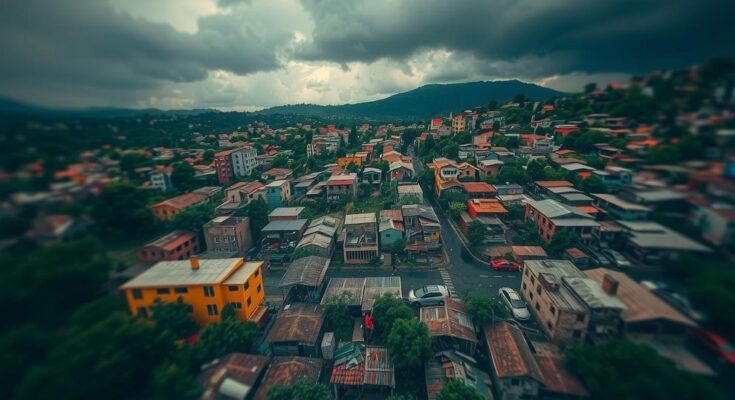This article analyzes the impact of short-term weather shocks on poverty in Paraguay, emphasizing significant income reductions and increased poverty rates among affected households, particularly in rural areas. Heat shocks cause notable declines in income and increase poverty rates, while flooding primarily impacts urban dwellers. The findings call for targeted adaptation strategies to bolster resilience among the most vulnerable populations.
In Paraguay, the advancement of poverty reduction has stagnated since 2014, a development attributed in part to a slowdown in economic growth resulting from various climate-related events. This study critically assesses the consequences of short-term weather shocks on both income levels and poverty within the country. By leveraging a comprehensive dataset comprising the Permanent Continuous Household Survey, European Centre for Medium-Range Weather Forecasts climate data, and Climate Hazards Group precipitation records from 2004 to 2019, the research employs ordinary least squares pooled regression analysis to identify trends across different districts over time. Findings from the study reveal that heat shocks substantially diminish household incomes, with urban areas experiencing a reduction of approximately 5 percent, while rural areas face an even steeper decline of nearly 8.8 percent. Moreover, short-term weather phenomena increase poverty rates, with urban areas seeing a rise of 1.7 percentage points and rural areas experiencing a 4.2-point increase. Flooding predominantly affects urban dwellers, adding 1.9 percentage points to poverty levels. Vulnerability varies notably according to regional and household characteristics; female-headed households in rural communities exhibit heightened susceptibility to heat shocks, whereas those engaged in the primary sector endure the most severe impacts during both heat and drought shocks. Overall, these results illustrate the disparate effects of weather shocks on poverty and income across varying demographics, underscoring the need for targeted adaptation and climate risk strategies that consider the unique vulnerabilities of specific subpopulations within Paraguay.
The exploration of climate-related shocks represents a critical area of inquiry, especially in regions like Paraguay, where economic growth has plateaued amidst adverse climate events. Understanding the linkage between weather patterns and socio-economic metrics, particularly for impoverished communities, is essential for developing effective policies. This investigation harnesses a blend of empirical data to unveil the profound implications of weather-induced economic fluctuations, providing a nuanced perspective on how climate variables exacerbate existing inequalities.
The study elucidates the significant negative ramifications of short-term weather shocks on both income and poverty levels in Paraguay. The pronounced disparities in impact based on geographic and demographic factors highlight the urgency of devising adaptive strategies to mitigate these vulnerabilities. By tailoring interventions to specifically address the needs of the most affected groups, stakeholders can enhance resilience against climate risks, thereby promoting sustainable development in the face of ongoing environmental challenges.
Original Source: reliefweb.int




